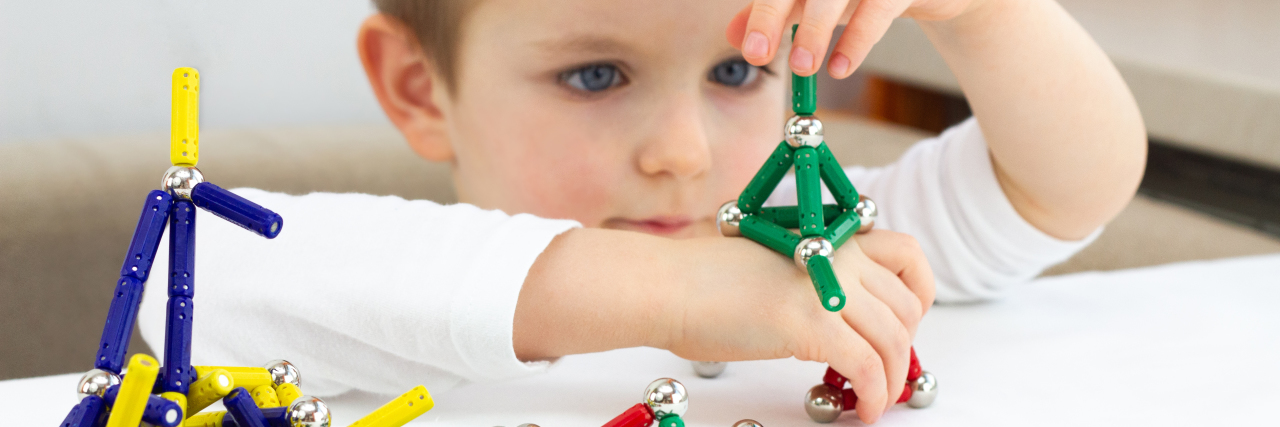Autism is not a mental illness or a mental defect. It is a unique way of learning and experiencing the sensory world.
It has always astonished me how educators guess at what our autistic children need in the absence of any professional documentation regarding the learning profiles or sensory profiles of autistic students. A psycho-educational assessment has the potential to tell us exactly how our child learns, and pinpoint exactly where they are struggling.
It can help support the essential need to supplement all verbal learning with visual supports, for example, or measure the degree of strength or struggle in the many areas of executive functioning that are so important in the school setting: working memory, organization, and task initiation, to name a few. Once we know what the challenges really are, appropriate and relevant supports can and must be provided. Sadly, very few autistic children are provided with these assessments.
The same is true of sensory processing assessments. These are rarely provided within our school systems, and no one is telling parents of newly-diagnosed children just how important this assessment could be to understanding their child’s experience of their world.
It is worth noting that the sensory differences of autistic children are not a sidebar to the diagnosis. Up to 90% of autistic children have sensory and/or motor differences that can be the cause of, or contribute to, their behaviors or emotional responses.
It stands to reason, then, that if we don’t have a professional understanding of how a child is experiencing his or her physical/sensory environment, we will fail to make connections between coping behaviors, school achievement, and the child’s experience of the school setting. The many autistic children who are overwhelmed by the noisy, unpredictable sensory environment that is their school day may exist in a state of fight, flight or freeze while there, with educators completely missing the cause.
Our children are instead characterized with unflattering editorial words: lazy, spaced out, rude, defiant, when all they were trying to do was protect themselves from a world that is Just. Too. Much.
We must have comprehensive sensory assessments, along with psychoeducational assessments, when we are trying to figure out why an autistic child is struggling.
If we don’t provide these assessments — along with professionals who truly understand the implications of the findings — I would suggest that any ideas we have to support challenges are just a crapshoot — guesses based on a neurotypical worldview.
In my experience, so-called behavior issues are really “lack of understanding” issues and “lack of appropriate support” issues. It’s high time we started providing psycho-educational assessments and comprehensive sensory assessment to every autistic child so they can be taught in ways that work for them and in environments they can tolerate.
Getty image by Cheshka.

